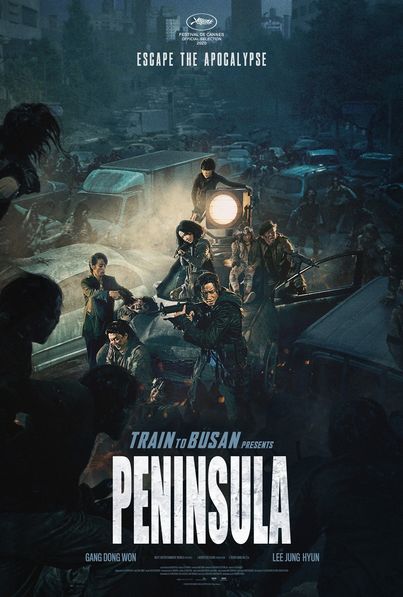Peninsula (2020)


Peninsula” serves as a sequel to the acclaimed South Korean zombie film “Train to Busan,” transporting viewers four years into the future to a desolate Korean peninsula overrun by the infected. Directed by Yeon Sang-ho, this film shifts the focus from the confined setting of the original to a broader, more chaotic landscape.

Visuals and Atmosphere: The film excels in creating a visually stunning wasteland. The desolation and chaos of the ravaged Korean peninsula are rendered with striking realism, enhancing the post-apocalyptic atmosphere. The cinematography effectively captures the scale of the disaster and the bleakness of the environment.

Action Sequences: “Peninsula” delivers intense and well-choreographed action sequences that are sure to keep audiences on the edge of their seats. The film’s focus on high-octane thrills and adrenaline-pumping moments provides a different experience compared to its predecessor.
Social Commentary: The movie adds depth to the zombie genre with its exploration of survival and human nature. The social commentary on the lengths people will go to in extreme situations enriches the narrative beyond the typical zombie fare.
Character Development: However, “Peninsula” may not satisfy all viewers. The characters, led by Gang Dong-won as Jung-seok, can feel less developed compared to those in “Train to Busan.” The film prioritizes action over emotional engagement, which might be missed by fans of the original film’s character-driven storytelling.
Ending: The ending of “Peninsula” may be divisive, with its ambiguous conclusion leaving some viewers questioning the fate of the characters and the broader implications of the story.
Overall: “Peninsula” is a worthy sequel that expands the “Train to Busan” universe with exhilarating action and a richly detailed world. While it shifts focus from character development to thrilling sequences, it remains a must-watch for fans of zombie action and post-apocalyptic narratives











